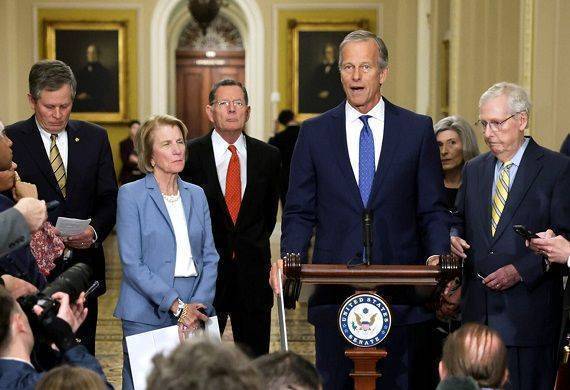Senate Passes Deal to End U.S. Government Shutdown
By Global Leaders Insights Team | Nov 11, 2025

The U.S. Senate on Monday approved a bipartisan deal to end the weeks-long government shutdown, voting 60-40 to restore funding for federal agencies that have been unfunded since October 1. The bill now moves to the House of Representatives for approval.
The agreement halts President Donald Trump’s planned federal workforce cuts until January 30, pausing a key part of his downsizing agenda. However, it does not include the automatic continuation of health-insurance subsidies that support about 24 million Americans — a point of contention for many Democrats. The issue will be revisited in December budget talks.
Supporters say the deal is essential to reopen shuttered offices and resume suspended programs. The shutdown had affected food assistance, airport operations, and delayed pay for hundreds of thousands of federal employees. The passage of the bill offers immediate relief to workers and restores normal operations across government departments.
- U.S. Senate passes bipartisan bill to end government shutdown and restore federal funding
- Shutdown deal pauses Trump’s workforce cuts but leaves health subsidy issue unresolved
- Government set to reopen as House prepares to vote on short-term funding measure
Financial markets reacted positively, with Wall Street edging higher as investors anticipated the reopening of the government and renewed stability in federal spending.
Critics, mainly from the Democratic side, argue that the compromise gives too much ground to Republicans and allows the administration future flexibility to cut spending. The measure funds the government only through January 30, raising concerns that another funding standoff could occur early next year.
Also Read: BBC Chief Tim Davie Resigns After Trump Documentary Row
The House is expected to take up the bill as soon as Wednesday. If approved, it would end the shutdown and reopen the government, bringing temporary relief but leaving deeper budget and policy disputes unresolved.
.jpg)



